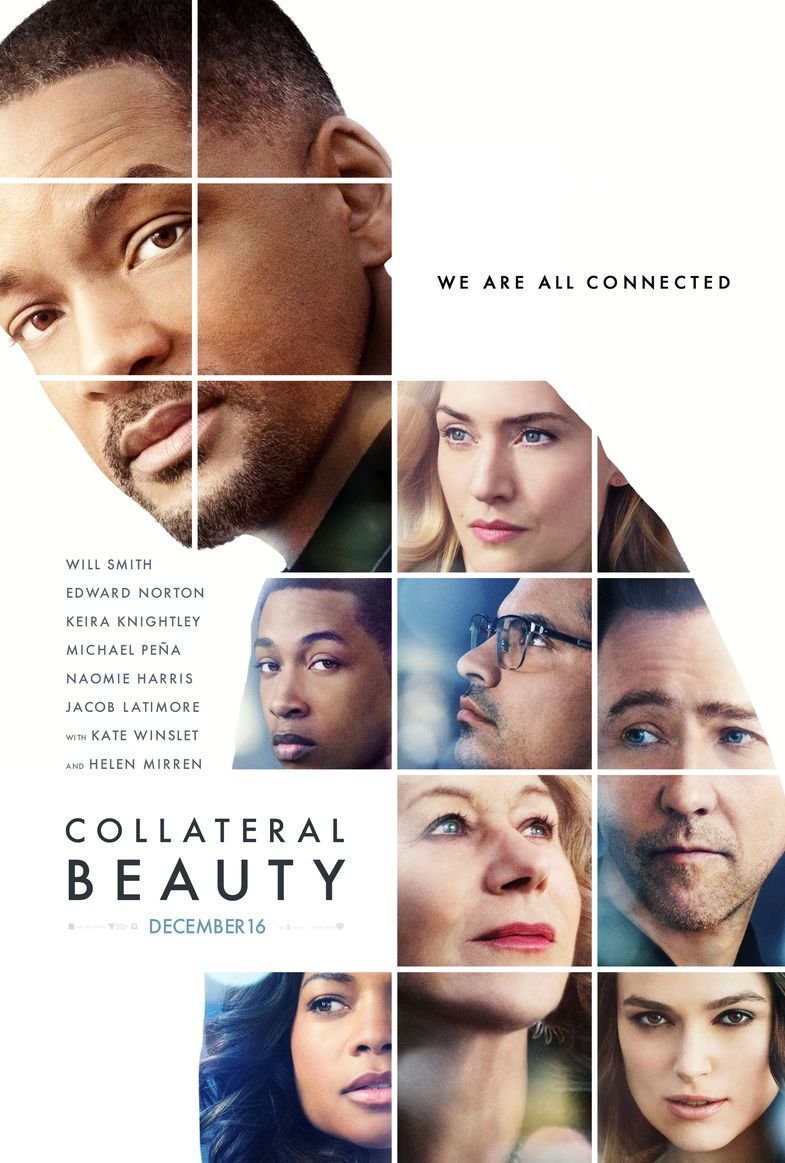
Award season is the time of year when we generally see a whole lot of movies that are heavy and dramatic—yet well-written, well-acted, and often boasting an all-star ensemble cast. And Will Smith’s latest award season entry, Collateral Beauty, has some—but, sadly, not all—of the ingredients of an end-of-year hit.
Collateral Beauty stars Smith as Howard, an advertising executive whose life fell apart two years ago, after his daughter’s death. Once active and outgoing, he’s all but checked out, showing up at the office yet rarely saying a word. The company is failing, but Howard is too deep in his anger and grief to do anything about it. So Howard’s partner, Whit (Edward Norton), comes up with a plan to prove that Howard is incapable of making decisions. But as they move ahead with the plan, Howard’s colleagues learn about themselves and their own lives, too.
Collateral Beauty tells a heartbreaking story about life after loss—about one man’s struggle to find meaning in his life after the death of a child. But it goes even further than that, too, piling on a support group full of people who have lost a child, as well as a cast of characters that are struggling with their own kind of heartbreak. It’s a film full of sad, miserable people, and that makes it a generally exhausting experience.
The story, too, feels forced and manipulative—and often just plain cruel. Despite the fact that the business is struggling, it seems excessive and harsh for the people who claim to be Howard’s closest friends to devise a plan that takes advantage of his already unstable condition to prove him incompetent. Granted, a couple of the characters understand how heartless it is, yet they carry on, pushing his already unbearable pain to the extremes. The characters, too, are a little too convenient: three actors hired to pose as three abstracts (Love, Time, and Death), each of whom just happens to be paired with the one coworker who needs their advice the most. It’s clear that it wants so desperately to be clever, but, in the end, it feels like it’s trying too hard to trick viewers with twists that aren’t entirely surprising.
It’s too bad that the story misses the mark—because this remarkable ensemble cast should make for a powerful film. Smith gives a touching and often compelling performance as the grieving father—and he’s surrounded by a whole host of underused talent. Helen Mirren is fun and flamboyant but a little over the top as the actress who plays Death, while the rest are bland and forgettable. And the waste of a perfectly good cast is almost sadder than the story itself.
Collateral Beauty seems to promise the kind of tear-jerking story that holiday audiences expect. But it’s build on a shaky foundation with an underused cast—and the result is a heavy award season drama without the award-worthy parts.
Listen to the review on Reel Discovery:


